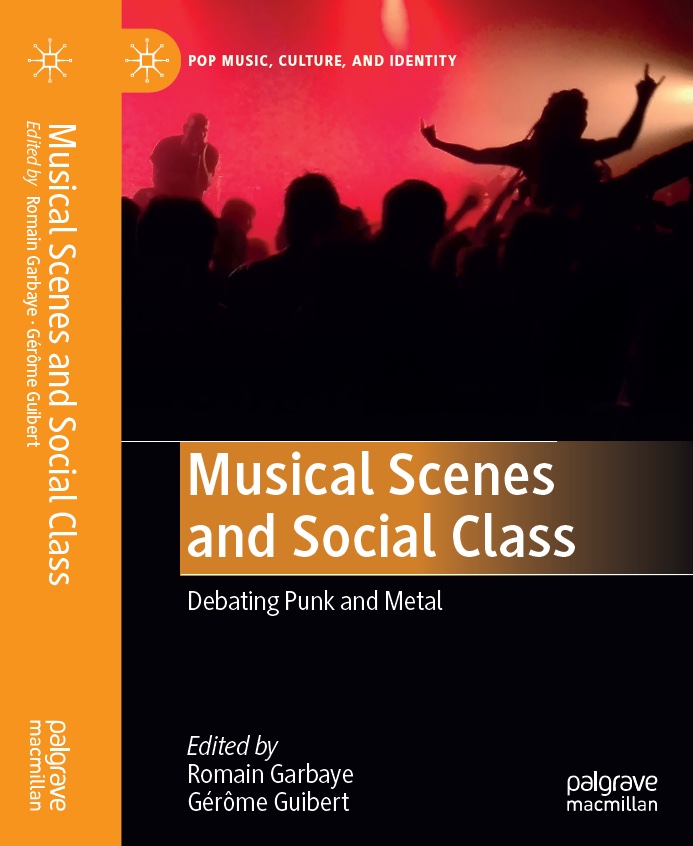Nous avons le plaisir de vous annoncer la parution de l’ouvrage Musical Scenes and Social Class. Debating Punk and Metal, chez Palgrave Millan.
https://link.springer.com/book/10.1007/978-3-031-56506-9
Avec des textes de Charlène Benard, Andy R. Brown, Corentin Charbonnier, Guillaume Clément, Romain Garbaye, Deirdre Gilfedder, Gérôme Guibert, Tim Heron, David Hesmondhalgh, Rosemary Lucy Hill, Pierig Humeau, Molly Megson, Eric Smialek, Jeremy Tranmer

Summary:
Early analysts of both punk and metal have shown their continuing popularity for segments of the public who were often considered in the 1970s and 1980s as “losers of globalization” despite the level of fragmentation of these scenes, the diversity of their audiences’ backgrounds, and their constant evolution and re-invention. This volume aims to stimulate and contribute to debates on social class and economic and cultural change, on one side, and punk and metal, on the other, through international, contemporary and historical approaches, mainly focused on Britain and France
Reviews:
“This important collection advances the scholarly conversation on punk and metal several steps forward. It is one of the few books that takes the significant parallels between punk and metal histories seriously, their convergences and their specificities. More than that, it seeks to rethink much of the mythology that has grown around the two genres regarding their status as ‘working-class’ styles. International in scope, interdisciplinary in method, Musical Scenes and Social Class is essential reading for anyone seeking to better understand the social character of popular music genres.” (Steve Waksman, Professor of Music, Huddersfield University, author of “This Ain’t the Summer of Love: Conflict and Crossover in Heavy Metal and Punk”)
“This is an essential collection of essays, unpicking and critiquing the cultural, sonic, political and aesthetic dimensions of punk and metal. Through comparative analysis, new insights are made.” (Matthew Worley, Professor of Modern History, University of Reading, author of “No Future: Punk, Politics and British Youth Culture, 1976–1984” and “Class Against Class: The Communist Party in Britain Between the Wars”)
“In a fragmentation and large-scale social crisis context, this Volume takes up the seminal debate between negativity and aggressivity in rock music (punk and metal) and class belonging in Britain and France. This fact is remarkable from the point of view of sociology and contemporary history, showing us – without mythologization – the various interrelations between cultural-artistic-musical practices and their still – and increasingly intense – determination by social belongings. It is not a question of going back but of reinterpreting the growing contemporary social polarization by and with these sounds. A vital feature of this Volume is also the demonstration of the self-renewal of punk and metal, from a spatial, social, cultural, and artistic point of view. The irreverence, resistance, and personification of subaltern and paradoxical identities, portrayed in this book, represent a step forward in the renewal of the approach to popular music because it has an intersectional approach here.” (Paula Guerra, Professor of Sociology, University of Porto and Co-Convenor, KISMIF Conference)





